
Volver al hub
Blog
Software
Marketing
The 7 best automated marketing software programs for 2025

Mathieu Co-founder
Publicado el 17 jun 2025Actualizado el 3 ago 2025
Automated marketing software streamlines repetitive tasks, optimizes workflows, and tracks campaign performance, enabling businesses to grow efficiently. By 2025, 56% of companies will use these tools to drive engagement, and 63% of them will see an improvement in their results within six months. This guide explores the seven best platforms to help startups, e-commerce, B2B, and businesses choose the right solution for them.
These platforms automate email campaigns, lead management, and multichannel prospecting while providing analytics to measure ROI. They save time, personalize customer interactions, and align marketing and sales through CRM integration.
Key features to look for
Email marketing: A/B testing, segmentation, scheduling, and performance reporting.
Lead management and scoring: tracks behavior to prioritize high-potential leads.
Multichannel support: integrates email, social media, SMS, and more.
Analytics and reporting: measures campaign success and ROI across all channels.
CRM integration: seamlessly synchronizes marketing and sales data.
The 7 best marketing automation platforms for 2025
1. Emelia.io - B2B cold outreach specialist

What it does: Emelia.io simplifies B2B prospecting by automating cold email campaigns and LinkedIn interactions. With an intuitive interface, it allows you to design personalized sequences combining emails and LinkedIn messages, offering a multi-channel approach.
Thanks to email Warmup, it ensures excellent deliverability. Emelia.io finds and verifies emails and phone numbers.
Its integration with LinkedIn Sales Navigator allows you to target qualified professional profiles and obtain contact lists for your mass prospecting campaigns.
Target audience: B2B sales teams, freelancers, and agencies focused on lead generation through cold prospecting.
Key benefits
Spam prevention and email warming ensure high deliverability.
Automated A/B testing improves conversions
LinkedIn Sales Navigator integration for seamless contact extraction.
Simple interface with no unnecessary features, ideal for quick setup.
Pricing
Standard: $39/month for 3 email addresses (unlimited campaigns and contacts, monthly billing).
Grow: $97/month for 50 email addresses (unlimited campaigns and contacts, up to 5 LinkedIn accounts, unlimited scraping and warmup, 1 CRM integration, 1,000 credits).
Scale: $297/month for unlimited email addresses (unlimited campaigns and contacts, up to 20 LinkedIn accounts, unlimited scraping and warmup, multi-CRM, unlimited APIs, 5,000 credits).
Free trial: 7 days, no credit card required.
Note: There is also a credit system. Credits are only debited when an email address is actually found, unlike other tools that charge for each search. For example, for €19, you get 1,000 email credits, allowing you to find up to 1,000 verified addresses with 99% accuracy. Unused credits are carried over to the next month and remain valid even if your subscription is suspended, offering optimal flexibility for B2B prospecting.
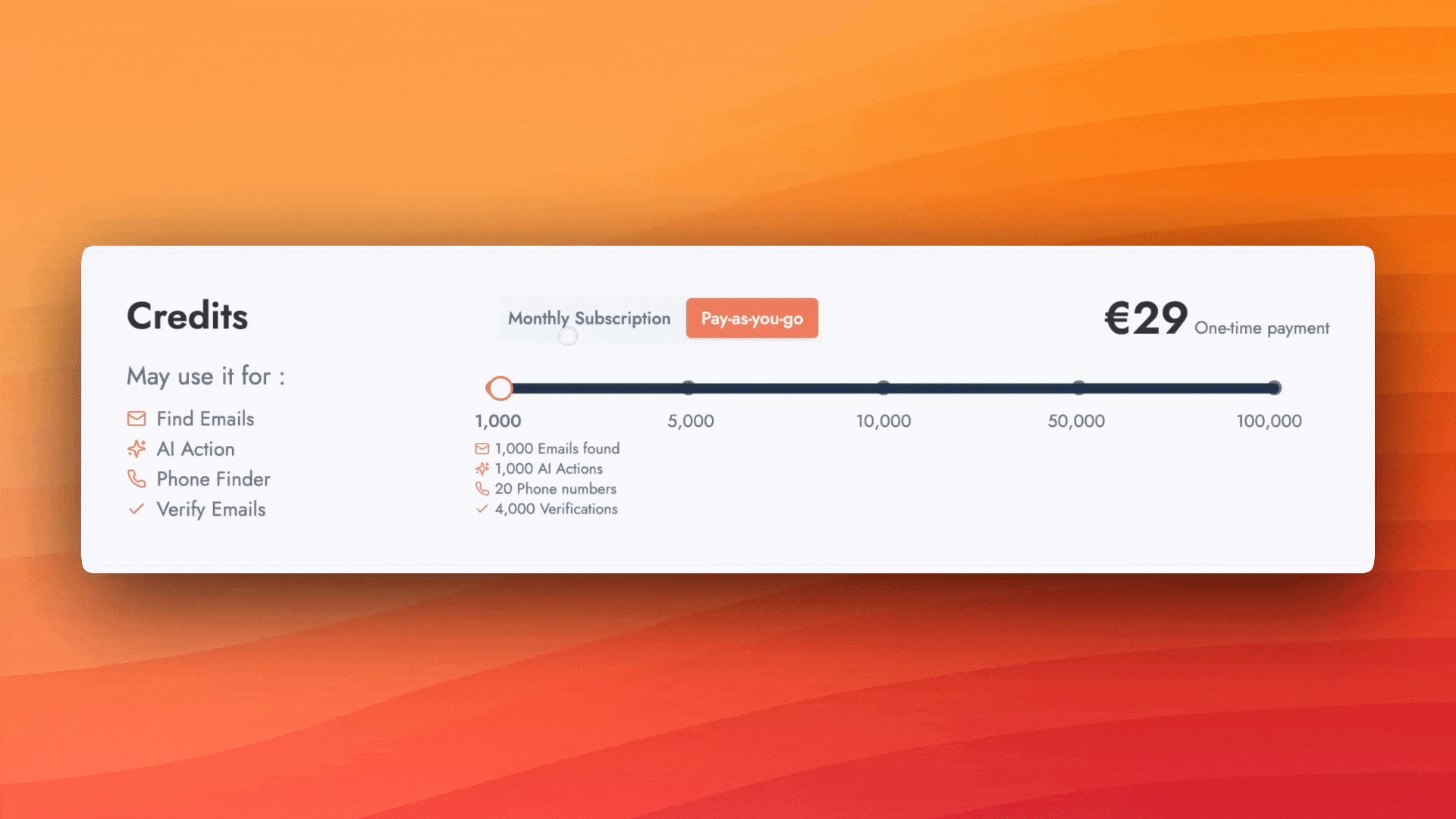
Cons: Limited to cold emails and LinkedIn prospecting; no advanced nurturing or multichannel features (e.g., SMS, social media).
Best for: B2B teams and freelancers who need affordable and effective cold prospecting tools.
2. HubSpot Marketing Hub - A powerful all-in-one solution
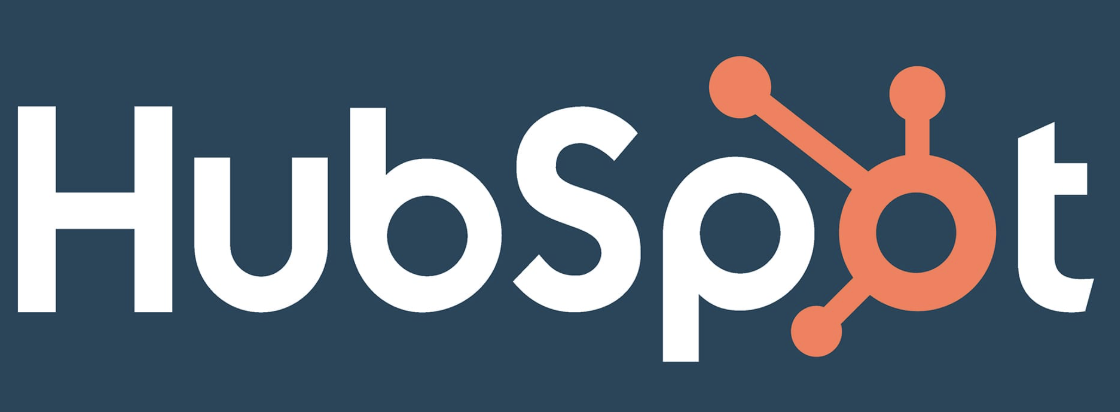
What it does: HubSpot offers a comprehensive suite for inbound marketing, including email automation, lead scoring, landing pages, social media management, and advanced analytics. Its visual workflow builder lets you create sophisticated campaigns, and the integrated CRM syncs marketing and sales data.
HubSpot Academy offers comprehensive training for users.
Target audience: Medium and large businesses looking for a scalable, all-in-one platform.
Key strengths
Automate email, social media, and web campaigns with drag-and-drop workflows.
Integrated CRM for seamless lead management and sales coordination.
Detailed analytics on campaign ROI and customer journey.
Pricing
Free: basic tools (forms, live chat, 2,000 emails sent per month, up to 1,000 contacts).
Starter: $18/month (1,000 contacts, billed annually; $20/month billed monthly) for email marketing, landing pages, and ad management.
Professional: $800/month (2,000 contacts, billed annually; $890/month billed monthly) for advanced automation, multichannel campaigns, and custom reports.
Enterprise: $3,600/month (10,000 contacts, billed annually) for predictive lead scoring, AI content tools, and unlimited teams.
Note: Prices vary based on the number of contacts (for example, the Professional plan for 87,000 contacts costs $4,440/month) (as of November 2024, according to HubSpot.com):
Cons: High costs for advanced plans; may be too complex for small businesses.
Best for: Businesses looking for a robust, integrated, and scalable platform.
3. ActiveCampaign - Automation Expert

What it does: ActiveCampaign excels at advanced email automation, lead scoring, and contact management, with over 135 triggers and more than 500 pre-built workflows. It supports email, SMS, and social media campaigns, with predictive sending (AI-based send timing optimization) and split testing for entire sequences. Over 900 integrations ensure flexibility.
Target audience: Teams that need complex, behavior-based automation workflows.
Key strengths
Intuitive drag-and-drop automation builder for personalized campaigns.
Predictive analytics and conditional content for increased engagement.
Best-in-class email deliverability for reliable inbox placement.
Pricing
Lite: $29/month (1,000 contacts, billed annually; $39/month billed monthly) for email marketing and basic automation.
Plus: $49/month (1,000 contacts, billed annually; $70/month billed monthly) for CRM, lead scoring, and SMS marketing.
Professional: $149/month (1,000 contacts, billed annually; $187/month billed monthly) for predictive sending and advanced reporting.
Enterprise: custom pricing for unlimited contacts and custom features.
Note: Prices increase based on the number of contacts (for example, the Plus plan for 50,000 contacts costs $699/month). (as of 2025, according to ActiveCampaign.com):
Cons: Steeper learning curve; high-end plans can be expensive.
Best for: Marketers building sophisticated multichannel campaigns.
4. Mailchimp - Simple and scalable
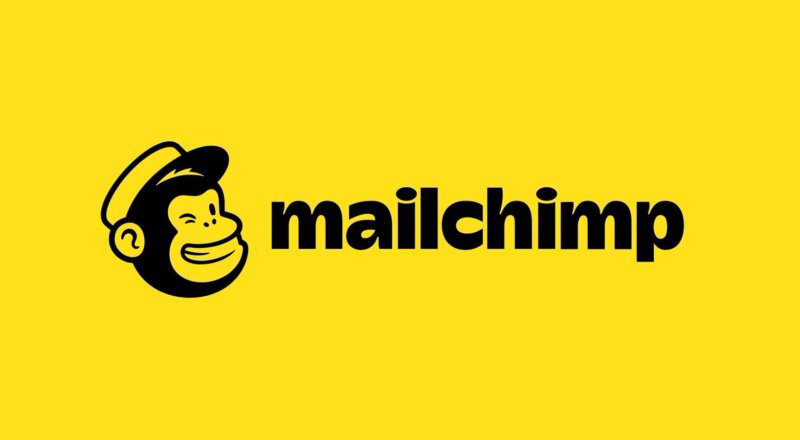
What it does: Mailchimp offers user-friendly email automation, segmentation, A/B testing, and landing page creation features, with over 50 behavior-based triggers and more than 300 integrations. It supports email, social media posts, SMS, postcards, and surveys, with pre-built templates for quick setup. Analytics focus on open rates, clicks, and conversions.
Target audience: Small and medium-sized businesses looking for simplicity and affordability.
Key strengths
Drag-and-drop editor and templates for quick campaign creation.
Affordable plans that scale with business growth.
Strong e-commerce integrations for product recommendations.
Pricing
Free: $0/month (500 contacts, 1,000 emails sent/month, basic templates).
Essentials: $13/month (500 contacts, 6,000 emails sent/month, billed annually; $14.50/month billed monthly) for automation and A/B testing.
Standard: $20/month (500 contacts, 12,000 emails sent/month, billed annually; $22/month billed monthly) for advanced automation and retargeting.
Premium: $350/month (10,000 contacts, 150,000 emails sent/month, billed annually) for multivariate testing and priority support.
Note: Prices vary based on the number of contacts (for example, the Premium plan for 75,000 to 100,000 contacts costs $1,025/month). (as of November 2024, according to Mailchimp.com):
Cons: Limited advanced automation; recent user complaints about customer service.
Best for: Startups and SMBs that prioritize ease of use.
5. Klaviyo - E-commerce leader
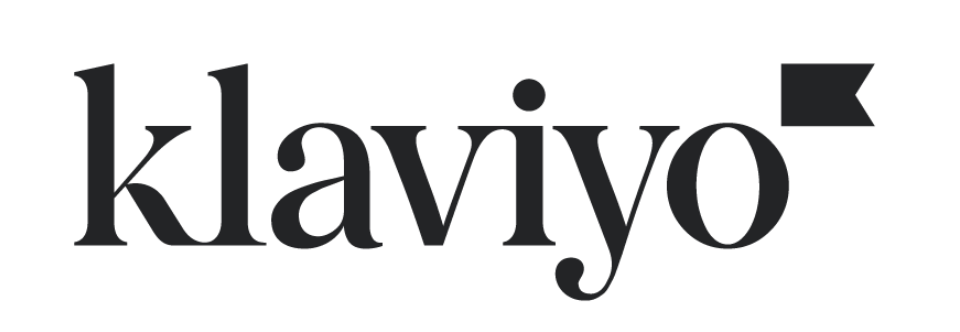
What it does: Klaviyo specializes in e-commerce automation and offers email and SMS campaigns, advanced segmentation, and AI-powered product recommendations. It tracks revenue by campaign, triggers emails based on actions (e.g., abandoned carts), and provides predictive analytics (customer lifetime value, churn risk). Integrates with Shopify, WooCommerce, and over 300 platforms.
Target audience: E-commerce businesses focused on revenue growth.
Key strengths
Real-time data synchronization for hyper-targeted campaigns.
Pre-built workflows for cart recovery, welcome sequences, and reactivation.
Predictive analytics to forecast customer behavior.
Pricing
Free: $0/month (250 contacts, 500 emails sent/month, 150 SMS credits).
Email plan: $45/month (1,000 contacts, 15,000 emails sent/month, billed monthly).
Email and SMS plan: $60/month (1,000 contacts, 15,000 emails sent/month, 2,500 SMS credits, billed monthly).
Note: Prices vary depending on the number of contacts (for example, the email package for 10,000 contacts costs $150/month; custom pricing for more than 100,000 contacts). (in 2025, according to Klaviyo.com):
Cons: steep learning curve; limited to email and SMS (no social media or web tools).
Best for: online retailers and subscription services.
6. Brevo - Multichannel specialist
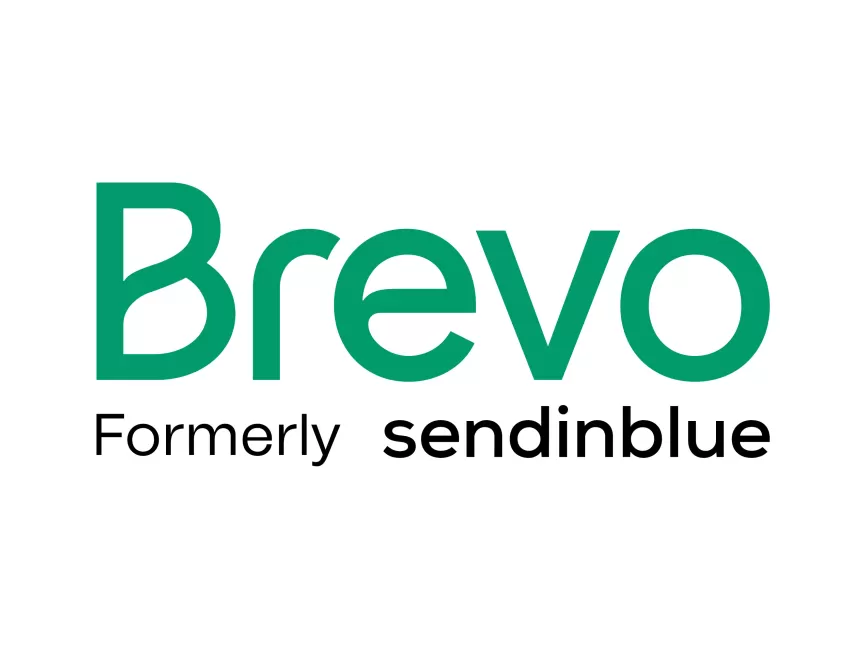
What it does: Brevo manages email, SMS, WhatsApp, and web push campaigns with a drag-and-drop editor, advanced segmentation, and automation templates (e.g., welcome series, abandoned carts). It includes a built-in CRM, live chat, and transaction tracking with campaign performance analytics. Supports over 65 integrations via Zapier.
Target audience: Businesses running multichannel campaigns on a limited budget.
Key strengths
Unified platform for email, SMS, WhatsApp, and chat.
Generous free plan with unlimited contacts.
AI tools for email writing and predictive sending.
Pricing
Free: $0/month (unlimited contacts, 300 emails/day, Brevo logo included).
Starter: $9/month (5,000 emails/month, no daily limit, billed annually; $10/month billed monthly).
Business: $25/month (20,000 emails/month, advanced automation, billed annually; $28/month billed monthly).
Enterprise: custom pricing for high-volume sending and premium support.
Note: Prices vary depending on email volume (for example, the Business plan for 1 million emails/month costs $669/month). (in 2025, according to Brevo.com):
Cons: Limited AI features; some users report integration issues.
Best for: Teams coordinating multi-channel campaigns at a lower cost.
7. Zoho Marketing Automation - Ecosystem integration
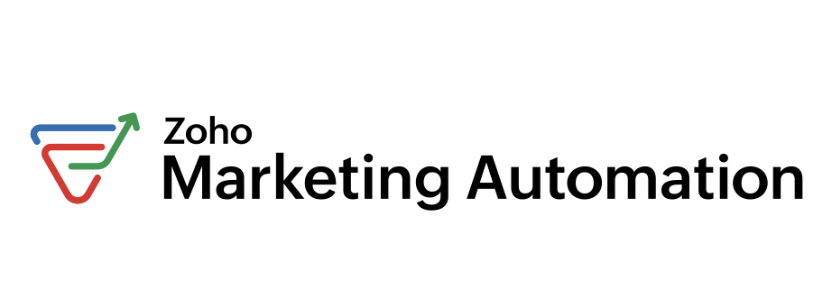
Features: Zoho Marketing Automation supports email, SMS, WhatsApp, and social media campaigns, with lead scoring, segmentation, and A/B testing. It integrates seamlessly with Zoho CRM, enabling lead nurturing automation and task creation. Analytics track campaign ROI and customer behavior, with a focus on multichannel orchestration.
Target audience: Businesses using the Zoho ecosystem or looking for cost-effective automation.
Key strengths
Native integration with Zoho CRM for a unified data flow.
Affordable plans with robust multichannel features.
Flexible user interface with constant updates based on user feedback.
Pricing
Standard: $12/month (2,000 contacts, billed annually; $14/month billed monthly) for email automation and basic analytics.
Professional: $35/month (2,000 contacts, billed annually; $40/month billed monthly) for advanced automation, lead scoring, and social media campaigns.
Enterprise: $75/month (2,000 contacts, billed annually; $85/month billed monthly) for predictive analytics and custom workflows.
Note: Prices vary depending on the number of contacts (for example, the Professional plan for 10,000 contacts costs $100/month). (in 2025, according to Zoho.com):
Cons: Less appealing outside the Zoho ecosystem; support may present language barriers.
Best for: Zoho users or budget-conscious teams.
How to choose the right platform
Startups/SMEs: Mailchimp or Brevo for their free plans and simplicity.
E-commerce: Klaviyo for revenue tracking and product recommendations.
B2B lead generation: Emelia.io for cold prospecting
Medium-sized businesses: ActiveCampaign or HubSpot for advanced automation.
Large businesses: HubSpot or Salesforce Marketing Cloud for scalability.
Implementation tips
Week 1: Preparation
Audit current processes and clean up data.
Set measurable goals (e.g., lead conversion rates).
Weeks 2-3: Configuration
Start with simple workflows (e.g., welcome emails).
Test campaigns (A/B testing on subject lines and send times).
Integrate key tools (CRM, analytics).
Month 2+: Optimization
Analyze ROI and refine audience segments.
Scale up successful campaigns.
Future trends
AI personalization: Hyper-targeted campaigns using predictive analytics.
Cross-channel integration: Unified platforms for all channels.
Privacy compliance: features to help you comply with data regulations.
Predictive insights: proactively anticipate customer needs.
Common mistakes to avoid
Choosing features you won't use.
Over-automating and losing the human touch.
Neglecting data quality for lead scoring.
Not monitoring and optimizing campaigns regularly.
Conclusion
Marketing automation is essential for growing effectively in 2025. Whether you're a startup using Mailchimp, an e-commerce company leveraging Klaviyo, or a B2B team mastering prospecting with Emelia.io, the right platform fits your goals and budget. Start with a free trial, implement a strategy, and continuously optimize to drive engagement and ROI.
FAQ

When will I see results?Efficiency improves within weeks; engagement increases within six months.
Do I need technical skills?Most platforms are user-friendly and require little expertise.
Email marketing or automation?Automation includes email but extends across multiple channels.
How do I measure ROI? Track lead costs, conversions, and customer lifetime value.
Is it affordable for small businesses? Free tiers and tiered pricing make it accessible.
Is CRM integration important? It's essential for syncing marketing and sales data.

Precios claros, transparentes y sin costes ocultos.
Sin compromiso, precios para ayudarte a aumentar tu prospección.
Créditos(opcional)
No necesitas créditos si solo quieres enviar emails o hacer acciones en LinkedIn
Se pueden utilizar para:
Buscar Emails
Acción IA
Buscar Números
Verificar Emails
€19por mes
1,000
5,000
10,000
50,000
100,000
1,000 Emails encontrados
1,000 Acciones IA
20 Números
4,000 Verificaciones
€19por mes
Descubre otros artículos que te pueden interesar!
Ver todos los artículosProspección B2B
Publicado el 26 jun 2025
Clearbit vs Cognism: características comunes y diferencias
 Niels Co-founder
Niels Co-founderLeer más
Prospección B2B
Publicado el 30 jun 2025
Zopto vs Waalaxy: Comparación de herramientas de automatización de LinkedIn
 Niels Co-founder
Niels Co-founderLeer más
Software
Publicado el 24 jun 2025
Kaspr vs Waalaxy: los campeones que están redefiniendo la prospección B2B
 Mathieu Co-founder
Mathieu Co-founderLeer más
Software
Publicado el 24 jun 2025
PhantomBuster vs Waalaxy: automatización B2B para dominar la prospección en 2025
 Niels Co-founder
Niels Co-founderLeer más
Prospección B2B
Publicado el 2 jul 2025
Overloop vs Waalaxy vs Emelia: ¿Qué herramienta utilizar para impulsar su prospección B2B?
 Niels Co-founder
Niels Co-founderLeer más
Software
Publicado el 30 jun 2025
Salesflow vs Waalaxy: La batalla definitiva de 2025
 Niels Co-founder
Niels Co-founderLeer más
Enlaces útiles
HubCold-email: Guía CompletaEntregabilidad: Guía completaAlternativa a LemlistAPISolicitar una demoPrograma de afiliadosFind emailMade with ❤ for Growth Marketers by Growth Marketers
Copyright © 2026 Emelia All Rights Reserved
